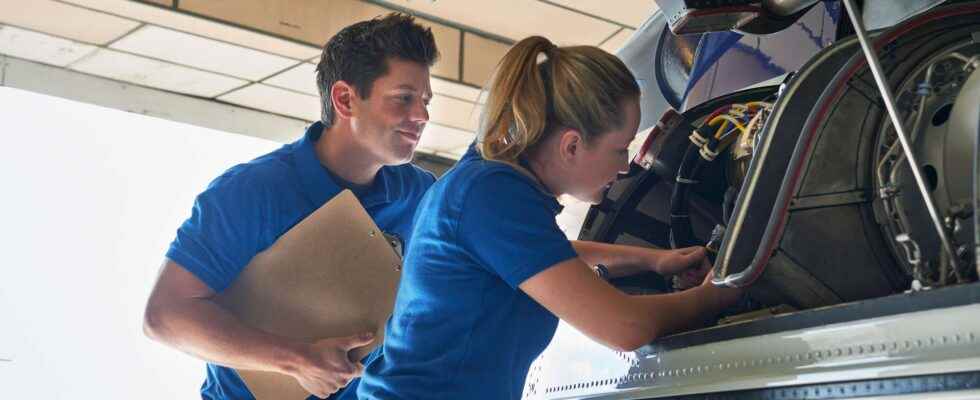The publication by the IPSA of 3and observatory of air and space professions gives some perspective to a sector hard hit by the health crisis and forced to reinvent itself.
You will also be interested
The aerospace industry has been one of the hardest hit by the health crisis. After experiencing a hell of a holeair, the sector is finding a little horizon, which should have an impact on the upsurge in future recruitments. Especially since this area of turbulence ultimately proves to be an opportunity to accelerate its necessary transformation in favor of ecological transition, new forms of mobility and the integration of new technologies. It is in any case the result of 3and observatory of air and space professions which has just been published by the IPSA engineering school, and was conducted by Ipsos with 200 aerospace industry leaders.
The renewed optimism of the sector
First good news: optimism reigns for the future of aeronautics and space. 57% of business leaders surveyed believe that their sector is gate well today, despite a dizzying drop in opinion of 41 points compared to 2019, before the crisis. They are even at 65% to think that their company will be growing from 2022, certainly to return to economic prospects at the level of 2017. In any case, they can rely on the fundamentals of the sector such as the ability to innovate, to export and to recruit the right profiles which are good for 90% of respondents, or even very good for 16% of them.
Significant recruitment prospects
Such prospects have an impact on the forecasts of recruitment. 74% of business leaders are optimistic about their ability to hire in the coming year. The profiles sought concern engineers (85%) as well as senior technicians (88%), or even operators and mechanics (85%). The area most eager for talent concerns research and development according to nearly one in two companies, ahead of production at 39%, design offices at 33%, quality at 22% or support functions at 18% .
The evolution of professions in line with the challenges to be met
Proof that the sector is seeking to reinvent itself to meet the challenge of air transport that is more respectful of environmental issues, 46% of respondents place the electric plane at the top of the technological developments that will create the most jobs in the years to come. follow artificial intelligence (37%), cybersecurity (32%) and new mobility (31%). Results consistent with the spontaneous responses on the evolution of professions in the sector by 2025: the integration of new technologies (automations, digitization, artificial intelligence, 3D printing, etc.); the ecological transition (less polluting planes, new fuels, hydrogen, all-electric, etc.); new mobility (drone, flying taxis, embedded systems, small satellites, etc.).
Particularly sought-after skills and qualities
The most promising jobs in matter recruitment? Cybersecurity engineers (34%), quality engineers (33%) and aeronautical artificial intelligence and data science engineers (32%). It should also be noted that companies’ changing expectations regarding soft skills candidates: adaptability (81%), the ability to work in a team (60%) but also international openness, up four points compared to 2021.
Interested in what you just read?
.
fs8
